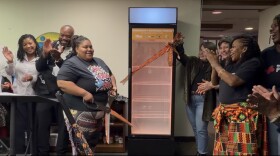The U.S. Supreme Court announced its long-awaited decision on partisan gerrymandering — the practice of writing maps to disadvantage certain political parties. Justice John Roberts wrote the majority opinion, finding that federal courts cannot remedy issues of partisan gerrymandering. The vote was 5-4, along ideological lines with the more conservative justices in the majority.
READ: The Supreme Court Rules Partisan Gerrymandering Is Beyond The Reach Of Federal Courts
Justice Elana Kagan authored the dissent — lambasting the majority decision as failure of the court’s duty to preserve the fundamental and constitutional rights of U.S. voters. Now, in states like Wisconsin, the decisions over gerrymandering cases are largely in the hands of politicians who have benefited from these maps.
The court's decision could have a far-reaching impact on redistricting in Wisconsin and the idea of "one person, one vote," according to David Daley. He's an expert on gerrymandering and author of the book Rat-F’d: Why Your Vote Doesn’t Count.
"We used to have this kind of agreed upon notion that elections and government depends upon the consent of the governed. And that’s what gerrymandering positively erodes. It’s fundamentally corrosive to that idea," says Daley.






